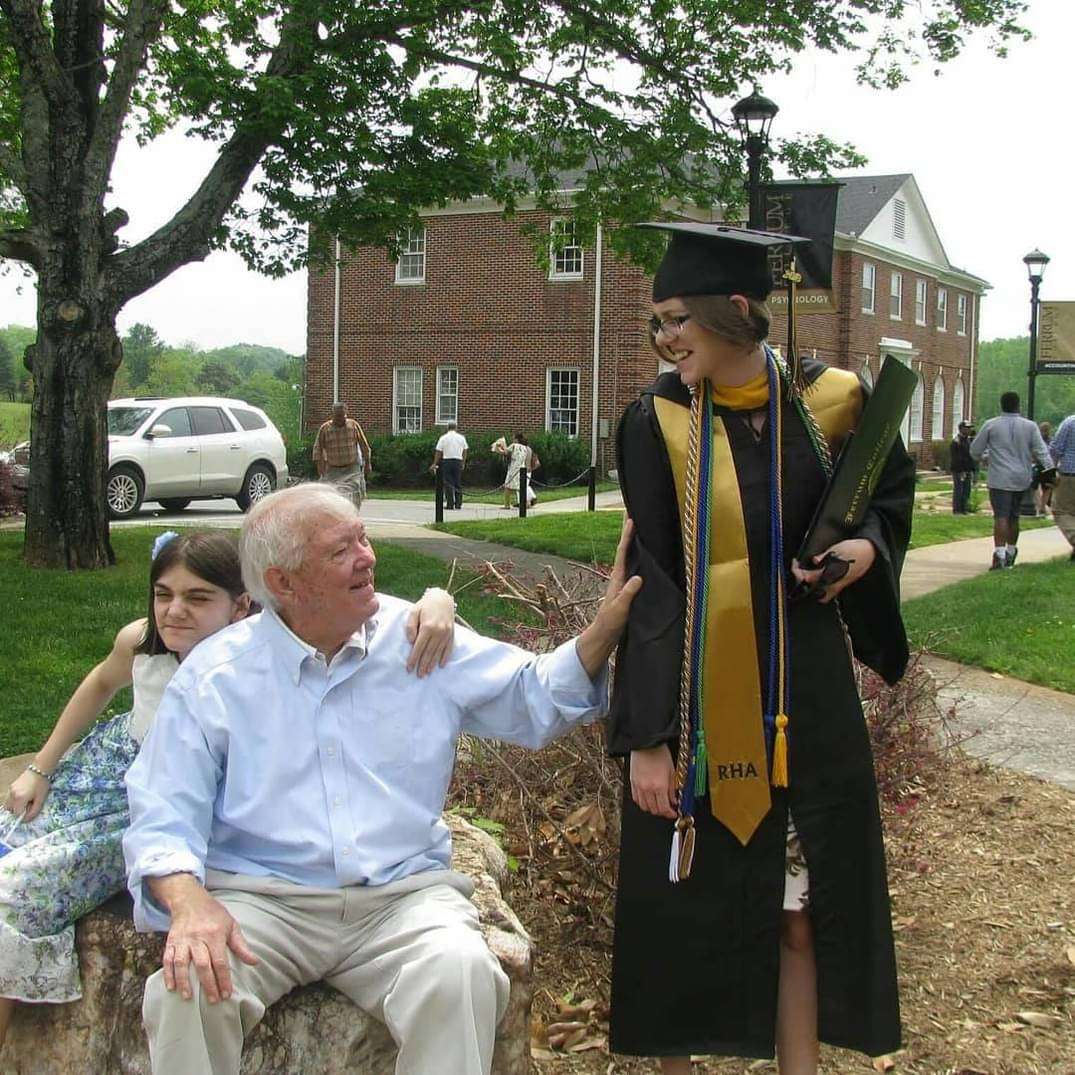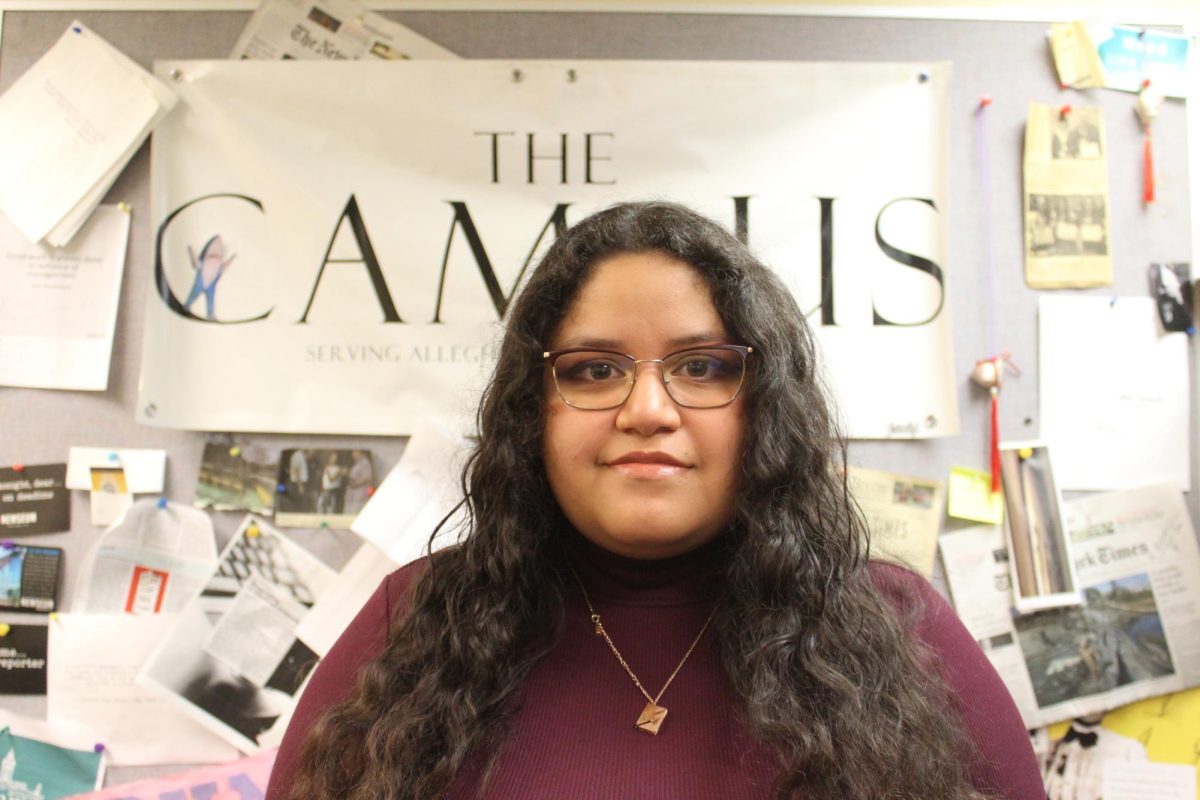When you hear the words “sorority” and “fraternity,” what comes to mind? Many people would associate these words with parties, alcohol and exclusiveness, but what lies behind the mask of Greek Life is something much more profound: philanthropy.
As a new member of Greek Life myself, I have had the opportunity and pleasure to socialize with other members of Greek Life, and now we share a common bond.
Going back through the archives of The Campus’ Opinion section, I came across an opinion piece titled ‘Greek Life hurts, rather than helps, campus community,’ Lee Swaydis’, ’14, Letter to the Editor in the April 21, 2011 issue of The Campus, in which he states that “there is no reason that students should continue to tolerate the disease that is Greek.” Although I may be a new member of a sorority, I find this statement disrespectful to all members of Greek Life, past and present.
At the heart of every sorority and fraternity is a proudly represented national philanthropy, a group or an organization that is represented by a sorority or a fraternity, for which their goal is to raise money for that organization; each philanthropy is represented by the same sorority or fraternity nationwide. I had the opportunity to sit down and talk with some of the philanthropy chairs here at Allegheny, and came to realize that there is much, much more to Greek Life than meets the eye.
Ever wonder where all those flyers advertising fun events such as dance parties, pancake breakfasts, and cookouts come from? The majority of them come from your Greek Life representatives right here at Allegheny College. When it comes to our respective philanthropies, we don’t just aim to raise money for them, but to unite the college community, as well as the Meadville community in a fun and exciting kind of way.
Many people fail to realize is that a vast portion of our philanthropic efforts directly benefit our community right here in Meadville.
Larry Hailsham, ’15, philanthropy chair for Delta Tau Delta, shared with me their efforts to benefit Meadville’s Community Improvement Center. The brothers of Delta Tau Delta will be hosting a chicken and waffles dinner to benefit the Community Improvement Center on March 1, 2013.
“We wanted to make sure we were supporting the Meadville community,” Hailsham said. “We always press toward our national philanthropy, the National Juvenile Diabetes Research Fund, but we wanted to push more for Meadville this year. We want to show we’re concerned and that we care. After all, it is our home!”
While the brothers of Delta Tau Delta are amplifying their efforts this year to reach out to the Meadville community, the philanthropic efforts of the sisters of Alpha Chi Omega have always been felt right here in Meadville.
Bri Guarino, ’15, philanthropy chair for Alpha Chi Omega explained to me just how deeply their national philanthropy affects the sisters of Alpha Chi Omega. The national philanthropy of Alpha Chi Omega, Domestic Violence Awareness, directly benefits the local Women’s Services in Meadville.
The candlelight vigil held in Ford Chapel every October serves as a reminder that domestic violence is still very much a problem, even within Meadville. Along with their on campus efforts to raise money supporting Domestic Violence Awareness, the sisters of Alpha Chi Omega volunteer during “Service Saturday’s” at the local women’s shelter.
“We get the whole chapter involved,” Guarino stated. “We split our time between the shelter, the Humane Society, the Crawford County R.E.A.D program and local soup kitchens.”
Why is this so important? “You get to see the side of Meadville other than Allegheny,” mentioned Guarino. “You get to see where your money is going. Doing something bigger than yourself is something to be proud of, and we take pride in our philanthropy. It’s the cornerstone of our sorority.” The effects of Alpha Chi Omega’s philanthropic efforts are definitely felt throughout the community, but just how far are we able to reach out?
The brothers of Phi Delta Theta are rallying themselves for quite a show this coming semester. Jim Heaton, ’14, the Phi Delta Theta philanthropy chair, shared his fraternity’s efforts to expand their efforts to raise money for Amyotrophic Lateral Sclerosis.
“We’re doing a lot more this semester to raise money for ALS,” Heaton said. “We’ve been selling origami roses for Valentine’s Day in the Campus Center and we are all working on putting together a potential bowling event for the campus. We’re also working with the sisters of Kappa Kappa Gamma for this semester’s talent show.”
Heaton stated that he hopes to get his entire fraternity involved with “Iron Phi,” a marathon in Pittsburgh in which all proceeds would benefit ALS.
“Aside from the big things, like Iron Phi, we wanted to focus on the little things to involve the whole campus, too,” Heaton said.
If one thing is clear, it is that there is no lack of motivation on the fraternities’ and sororities’ parts to involve the campus and community with something bigger than themselves. The efforts in part of all fraternities and sororities on behalf of their philanthropies here at Allegheny are widely felt by not only the students, but also the members of the Meadville community. After my day of interviewing philanthropy chairs, I learned one thing: not one sorority of fraternity here at Allegheny College wants to be known for parties, but rather for the work they put towards their philanthropy.
Dominic Raggi and Patrick Miley, ’14, philanthropy chairs for Sigma Alpha Epsilon summed it up perfectly: “Half the matter is self-betterment. The other half is bettering your campus and your community,” Raggi said.
“Fraternities aren’t just about the night life,” Miley said. “It’s about coming together as a brotherhood. […] Even more than the money, it’s the time that counts. You can’t put a price on that.”
Although I’ve only been in Delta Delta Delta since January, I have learned that there is no stronger support system than that of Greek Life. Whether it is a sister or a brother helping me with homework or lending me his or her shoulder to cry on, I am constantly reminded that I will be supported in my endeavors, not just during my next four years here at Allegheny but throughout the rest of my life as well.
What Lee calls a “disease,” we call giving back. We call this self-betterment, community service, and selflessness. We call this Greek Life, and we are all proud to be a part of it.






Cody Miller • Feb 20, 2013 at 3:53 am
Does the sum of money Greek life raises via philanthropic fundraisers and/or the sum of time members spend participating in philanthropic activities exceed the sum of money the organization receives for dues and/or the sum of time spent members spend participating in non-philanthropic chapter-required events? Does it vary from fraternity/sorority?
I’m not saying that this alone does or does not warrant any fraternity/sorority’s existence on this campus, but it’s something to consider.
Max Lindquist • Feb 20, 2013 at 7:35 pm
Try reaching out to Colin Soliem. He sent me a spreadsheet from ACCEL with data that answers your questions, but I deleted it last week.
Max Lindquist • Feb 15, 2013 at 7:07 pm
I respectfully disagree with your article. To begin with, not every fraternity on campus is philanthropic. I applaud those that are, but to argue that philanthropy is the heart and soul of Greek Life on campus is stretching it. My main problem with Greek Life stems from the fact that transgendered individuals (or people who identify as something other than their biological sex) are not welcome to join some organizations on campus. I know from my Founding Fathers interview that FIJI does not allow transgendered men to join their organization. This is a direct violation of the Statement of Community:
Allegheny students and employees are committed to creating an inclusive, respectful and safe residential learning community that will actively confront and challenge racism, sexism, heterosexism, religious bigotry, and other forms of harassment and discrimination.
I think both Katie’s and Lee’s articles raise legitimate concerns and the Greek community feels threatened by them. It’s 2012, Allegheny. Time to evolve.
Jon Welsh • Feb 16, 2013 at 5:14 pm
Bylaws regarding membership eligibility of Greek letter social fraternities are not something the individual chapters have control over, they are a part of the overall constitution of the fraternity. Yes, it is unfortunate that not every has the privilege of joining Greek life for one reason or another, but the thing is joining is a privilege reserved for those invited by the current members of a chapter to join their brotherhood (or sisterhood). I promise you at least one organization on this campus is working towards opening membership to transgendered individuals and those who identify as something other than their biological sex. That being said, the idea of the Greek community feeling threatened is absurd. Just imagine how many donations would be lost once Greek alumni found out their chapters are no longer welcome at Allegheny.
Max Lindquist • Feb 16, 2013 at 5:20 pm
Don’t count your hens before they’ve hatched. I know DTD is trying to address the issue, but it doesn’t really matter unless something actually happens. It’s just ludicrous that the institution idolizes the Statement of Community and Greek Life feels like can be an exception to our code of conduct.
Jon Welsh • Feb 16, 2013 at 5:39 pm
I don’t believe we feel we are an exception at all. It takes time for these things to change, especially in establishments rooted in tradition such as Greek organizations. One thing that may be unrelated but really bothers me about the whole LGBT/Greek life debate is that in my time here I’ve never met an individual who is transgender or identifies as something other than their biological sex who has shown interest in joining and I really have to wonder why. Also, if there are individuals interested in joining Greek life but are unable because of stipulations out of the standing chapters’ control, I challenge them to join together and find Fraternity or Sorority who does not discriminate over such things and make the push to establish a chapter here at Allegheny and be an example of the change you want to see. If there isn’t one in existence, what is stopping anyone from creating their own? Greek letter organizations have a history of being founded for various causes. My history of organizations may be a little off, but Theta was founded in “opposition” to Fiji because one of the founding father’s sisters was not allowed to join. DTD was founded because the Phi Psi’s had overtaken the Neotrophian Society at Bethany College and our founding fathers sought to take it back for the general student body.
Max Lindquist • Feb 16, 2013 at 5:48 pm
I think this is going to be my final post, but I just want to make a final point that Greek Life clearly views itself as an exception to the Statement of Community. You stated in your post that you challenge people to “join together and find Franternities or Sororities who do not discriminate over such things”. You acknowledged that Greek Life on campus discriminates against certain populations and then you place the burden of accommodation and inclusion on those individuals who are discriminated against. It shouldn’t be there responsibility to find groups and organizations that are welcoming. Every group on campus should be welcoming to people regardless of their gender, sexuality, race, or religion.
Jon Welsh • Feb 16, 2013 at 6:08 pm
I openly acknowledge there to be discrimination; however, just because a national organization has not revised their bylaws does not mean its local members share the same views on an issue. I personally don’t see anything wrong with selective membership. Even if an organization’s bylaws allowed for it, who’s to say a bid be extended? You said “Every group on campus should be welcoming to people regardless of their gender, sexuality, race, or religion.” I truly believe the Delts are welcoming of all individuals who have not given us reason to disallow them at our house regardless of any of the things you listed. Just because we are not permitted to allow certain people into our brotherhood, does not mean they are unwelcome.
Ava Carvour • Feb 16, 2013 at 6:38 pm
Jon, you say, “The idea of the Greek community feeling
threatened is absurd.” Then you provide a veiled threat of your own, “just imagine how many donations would be lost once Greek Alumni found out their chapters are no longer welcome.” So, you’re suggesting that instead of ensuring that Allegheny is an inclusive environment for the students that currently attend our school, we should instead worry about all the money we’d lose once
the people of privilege feel that they “are no longer welcome”. What a shame that everyday on this campus people feel that they are not welcome because Greek Life is designed around ideals of privilege, tradition, and exclusion.
It’s not a surprise that you’ve never met anyone who was
“transgender or identifies with someone other than their biological” sex who was interested in joining. Why wonder? The answer is obvious; Greek Organizations are organized to be hostile to their joining.
So, I have to agree with Max here. The onus should not be
placed on those who are discriminated against and excluded to strike out and form their own groups because they are not invited to join those that already exist. If Greek Life’s so “great” why isn’t inclusion a given and why can’t the privilege of tradition be tossed to the side?
Paul Roveda • Feb 16, 2013 at 7:05 pm
It’s 2013 champ.
Max Lindquist • Feb 16, 2013 at 7:06 pm
Oops. Duly noted